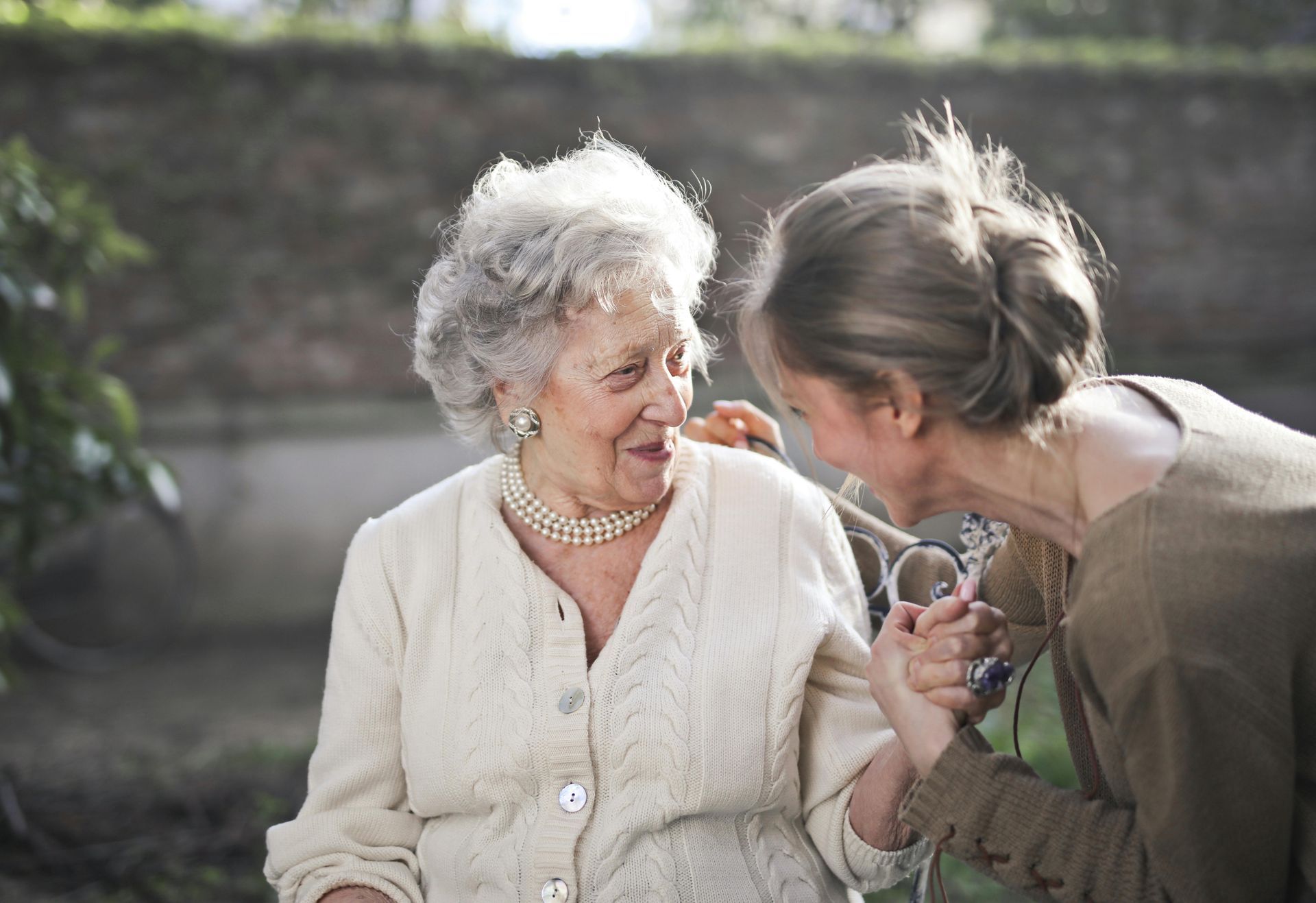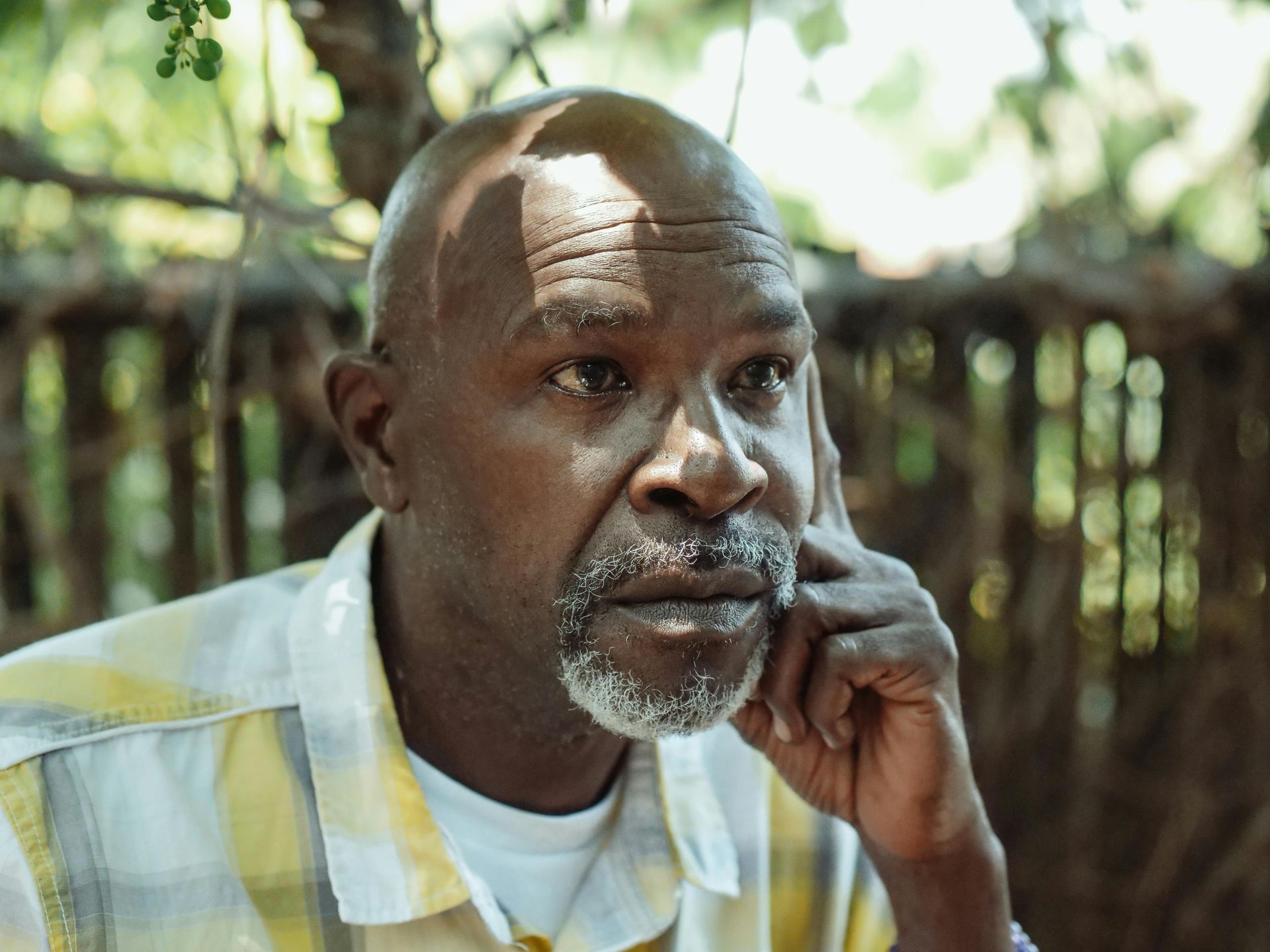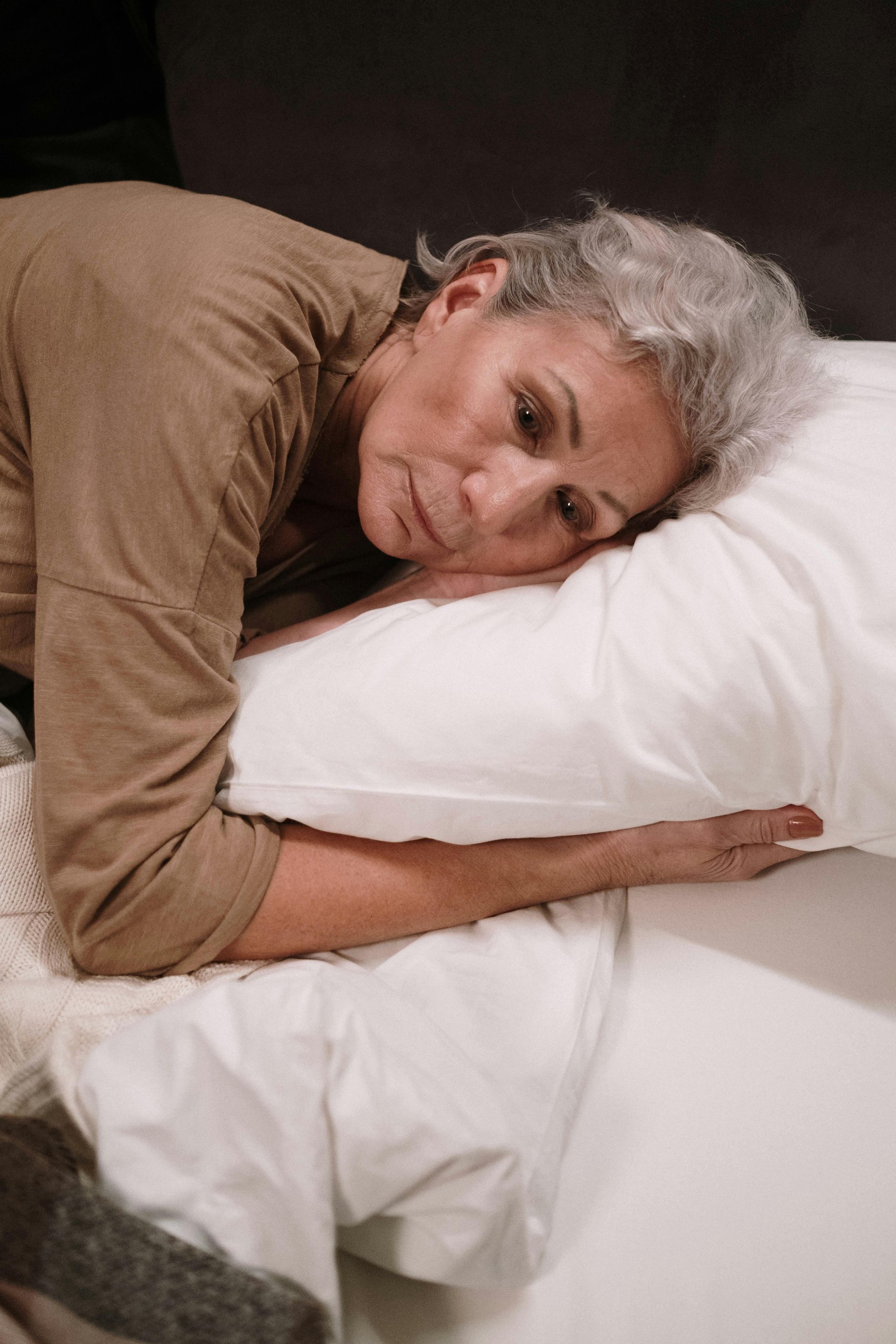Combating Depression In Seniors With Community And Connection-💜
CNS Healthcare • November 7, 2025
Growing older can be a joy for many people, however, depression in seniors is a growing issue for many families and their aging loved ones. Seniors often struggle with problems such as social isolation and chronic illness, leading to a higher risk of major depressive disorder.
Luckily, there are actions you can take to break this pattern and prove it doesn't need to be a normal part of aging. In this post, we'll cover how building supportive community and connection can help fight the risk of depression and help improve the quality of life for elderly patients.
Key Takeaways
- Social isolation is a major factor that can increase the risk of depression in seniors. The World Health Organization has stated loneliness to be a significant public health issue for elderly adults going through the aging process.
- Signs of depression may include sadness, sleep issues, loss of interest in typical activities, or thoughts of death.
- Support groups specifically designed for depression can help seniors feel less lonely and provide coping strategies to handle this disruptive health concern. Organizations such as CNS Healthcare in Detroit can provide local resources for those struggling with depression in Michigan.
- Programs that promote intergenerational relationships, like community gardens that connect seniors with younger people, can decrease loneliness and boost mental sharpness.
- For immediate support or suicide concerns, call or text 988. This service will connect you with local help in Michigan.
The Impact of Social Isolation on Senior Mental Health
Isolation can make depression infinitely worse for elderly people. If you've lost your spouse, relocated to a new city or home, or you're dealing with chronic medical conditions like Parkinson’s disease, Bipolar disorder, or Alzheimer’s disease, staying connected becomes much more difficult.
The World Health Organization considers loneliness and isolation to be a significant public health issue for elderly adults that can raise the risk of major depression and other mood disorders.
Seniors with chronic diseases like heart disease, physical illness, or chronic pain tend to feel alone in their pain. This feeling of disconnection can lead to ongoing sadness, low self-esteem, hopelessness, and even thoughts of death.
If you or someone you know needs immediate support, call the 988 Suicide & Crisis Lifeline to find out your local mental health treatment options.
Identifying the Signs of Senior Depression
Social isolation can deeply affect the mental well-being of older adults. Spotting the
signs of depression early is key to recovery.
- Some red flags include persistent sadness, anxiety, or feelings of emptiness that may affect their daily life.
- Other signals are feelings of hopelessness, guilt, worthlessness, or feeling like they have no future or value.
- Seniors may experience a loss of interest in activities they usually enjoy.
- Fatigue or lack of energy can make even the smallest things seem hard.
- Elderly people may notice changes in their sleep patterns. Some will sleep too much while others can't sleep at all.
- Appetite changes are also common. This may look like seniors eating more or less than usual.
- You may notice that risky behavior like substance use or ignoring safety rules increases.
- Irritability and restlessness are other signs to watch for. Small things might annoy them more than before.
- Seniors may have slower movement or speech, taking longer to respond or move around than usual.
- They may have frustrating memory loss or concentration issues that are mistakenly seen as symptoms of 'old age'.
- Neglecting responsibilities or their personal care may signal a lack of interest in life and puts elderly people at a greater risk for self-harm.
- You should take any
thoughts of death
or any suicide attempts seriously and seek out immediate assistance.
If you have seen these symptoms last for more than two weeks, speaking to a health care provider can help get a handle on this preventable mental health problem.
Building Community to Combat Depression
Depression in seniors can be prevented with the right tactics. Support groups are one simple way that older people can begin to connect with others. This also includes creating intergenerational relationships, as younger adults bring fresh new perspectives and energy to the mix.
Benefits of Support Groups
Depression support groups are a great resource give for aging adults because they give them the chance to meet and interact with other older adults who may be dealing with similar depression symptoms, medical illnesses, or memory loss.
These valuable relationships can help reduce common feelings of isolation and shame, both of which are common in later life. Seniors that live alone rather than in nursing homes can also benefit from this type of community.
These support groups, led by mental health care professionals, are a place where you can share your thoughts and experiences in a safe setting, learn coping strategies to manage your symptoms, and stay up to date on various effective treatment options.
You may want to look into local programs that focus on bringing seniors together for social activities and encourage physical activity. Groups like CNS Healthcare, the Depression and Bipolar Support Alliance and Mental Health America provide valuable resources for older adults dealing with symptoms of depression.
Family members are also welcome to join, helping to address caregiver stress. Attending regular group meetings can improve how well you maintain your depression treatment plan.
Encouraging Intergenerational Connections
Investing in intergenerational programs allows seniors to connect with younger people within a social environment and reduce depression symptoms that stem from isolation. Community gardens and family engagement fairs are great examples of these programs where seniors and young adults can work together, side by side.
Connecting with younger adults and children may also reduce feelings of loneliness. You might find that you enjoy mentoring youth, especially those who are not attending college. These events also help challenge common misconceptions around aging and reduce the stigma around mental health for everyone involved, creating a stronger community.
Support Our Seniors
While depression in seniors is a widespread issue, there are simple solutions that can improve their path to recovery. Building community and relationships is a big part of this method. Support groups are a safe space that can provide comfort, and interacting socially with younger adults and children can increase happiness and quality of life.
These simple steps can lead to changes in mental health, and improve the well-being of elderly adults with clinical depression. If you're a local Detroit senior, reach out to CNS Healthcare to get personalized support for depression today.
FAQs
1. What are the main risk factors for depression in older people?
Older patients face increased risk of depression due to chronic health conditions, family history of mental illness, and/or poor health. Aging can also contribute to memory problems that can lead to severe depression.
2. How does social support help seniors with depression?
Having strong social support from friends and community can give an older person a greater sense of purpose. This sense of purpose can reduce anxiety disorders and feelings that lead to major depression.
3. Which treatments work best for severe depression in seniors?
Treatment usually begins with talk therapy along with antidepressant medications like selective serotonin reuptake inhibitors. For some, electroconvulsive therapy may be used when these initial methods are not successful.
4. Can connecting through social media make a difference for seniors’ mental health?
Yes, using social media may possibly allow seniors to feel more connected to others. This online connection can improve their overall behavioral health by reducing loneliness and the feeling of isolation.
5. Why is it important to involve a mental health professional when treating senior depression?
A trained professional will be able to spot causes of depression or a mental disorder early on. This quick detection can lead to better treatment of major depression, plus more prompt care.
6. Are there signs that families should watch out for if they are worried about an older person's mood?
Families should keep an eye out for symptoms like difficulty concentrating or decision-making, obvious changes in energy levels, or if they start hearing physical complaints connected to chronic conditions. These red flags may signal prevalence of depression that will need further attention from trained mental health services.
Newsletter
Stay up to date by subscribing to our newsletter.
Recent Posts
SHARE THIS POST WITH YOUR FRIENDS













